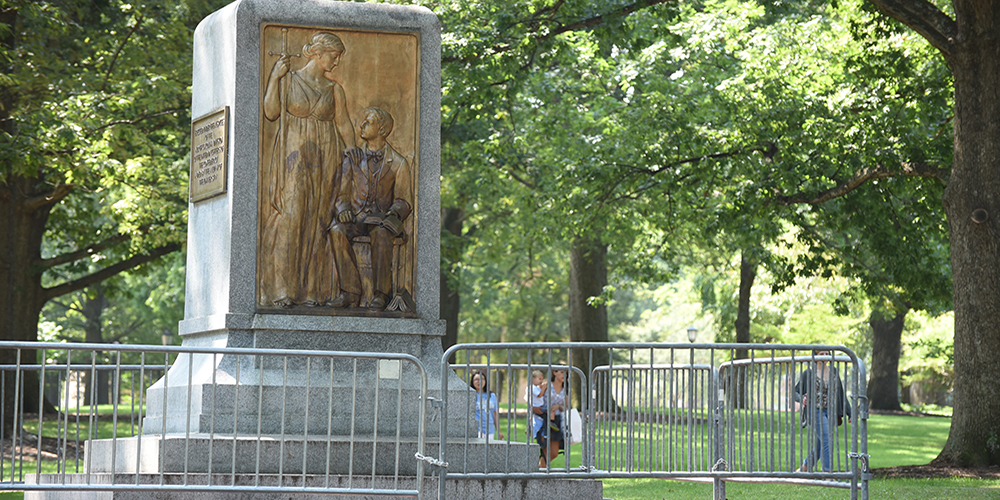CHAPEL HILL, N.C. — The parent company of The Daily Tar Heel, the University of North Carolina (UNC) at Chapel Hill’s student-run newspaper, settled its lawsuit against the UNC System for its handling of the Silent Sam Confederate monument legal agreements.
In Jan. 2020, DTH Media Corporation sued the UNC System, its Board of Governors, and individual board members over allegations of violating the state’s Open Meetings Law, reports Chapelboro.com.
In its lawsuit, the media group argued the $2.5 million settlement and an additional payment between the UNC System and the N.C. Sons of Confederate Veterans (SCV) were “conceived, negotiated, approved and executed in total secrecy.”
In Aug. 2018, a Confederate statue known as “Silent Sam” was illegally torn down by protesters who say it represented White supremacy and slavery. The statue was erected on the UNC-Chapel Hill campus in 1913 as a memorial to Confederate alumni who died during the Civil War and students who joined the Confederate States Army.
Its removal prompted clashes between those who supported the removal and others who supported the statue remaining on campus, including the SCV, who filed a lawsuit against the System. Under the terms of the subsequent Nov. 2019 agreement, UNC agreed the group could take possession of the statue and also put $2.5 million into a charitable trust that could be used for “certain limited expenses related to the care and preservation of the monument, including potentially a facility to house and display the monument.”
However, the deal was approved by the UNC Board of Governors during a private meeting of the board’s committee on university governance after negotiating behind closed doors for months, according to The State. The settlement prompted protests from students, faculty and alumni, a legal challenge from a national civil rights group, and the loss of $1.5 million in grant money.
Five board members who were named in the DTH lawsuit were tasked with finding a resolution regarding the statue but the members never held a public meeting in the 10 months after the group was formed. The lawsuit alleged the board members were a “public body” and were subsequently required to conduct public meetings and give public notice before reaching a settlement.
Weeks after the settlement was announced, the members wrote an op-ed explaining their decision, which mentioned an additional $74,999 from UNC to the SCV meant to limit the SCV’s practices and display of Confederate symbolism on the System’s statewide property for five years, reports The Daily Tar Heel. That was the first time the additional settlement money was made public, prompting DTH to file the lawsuit.
In Feb. 2020, Orange County Superior Court Judge Allen Baddour overturned the settlement between the System and the SCV, ruling the SCV had no legal standing to claim ownership of the statue or to file a lawsuit in the first place. The statue and most of the money has been returned to the UNC System. System leaders said what they plan to do with the statue will not be a primary focus at this time but that it will not return to campus.
As part of the settlement between the System and DTH, the System has agreed to:
- Give $74,999 to UNC-Chapel Hill to be used for initiatives related to racial equity on campus.
- Provide a written summary explaining the processes by which the Nov. 2019 settlement agreement between the System and the SCV was reached.
- Submit to a deposition answering questions related to the details of the December op-ed announcing the settlement.
In exchange, DTH agreed to dismiss its lawsuit.







